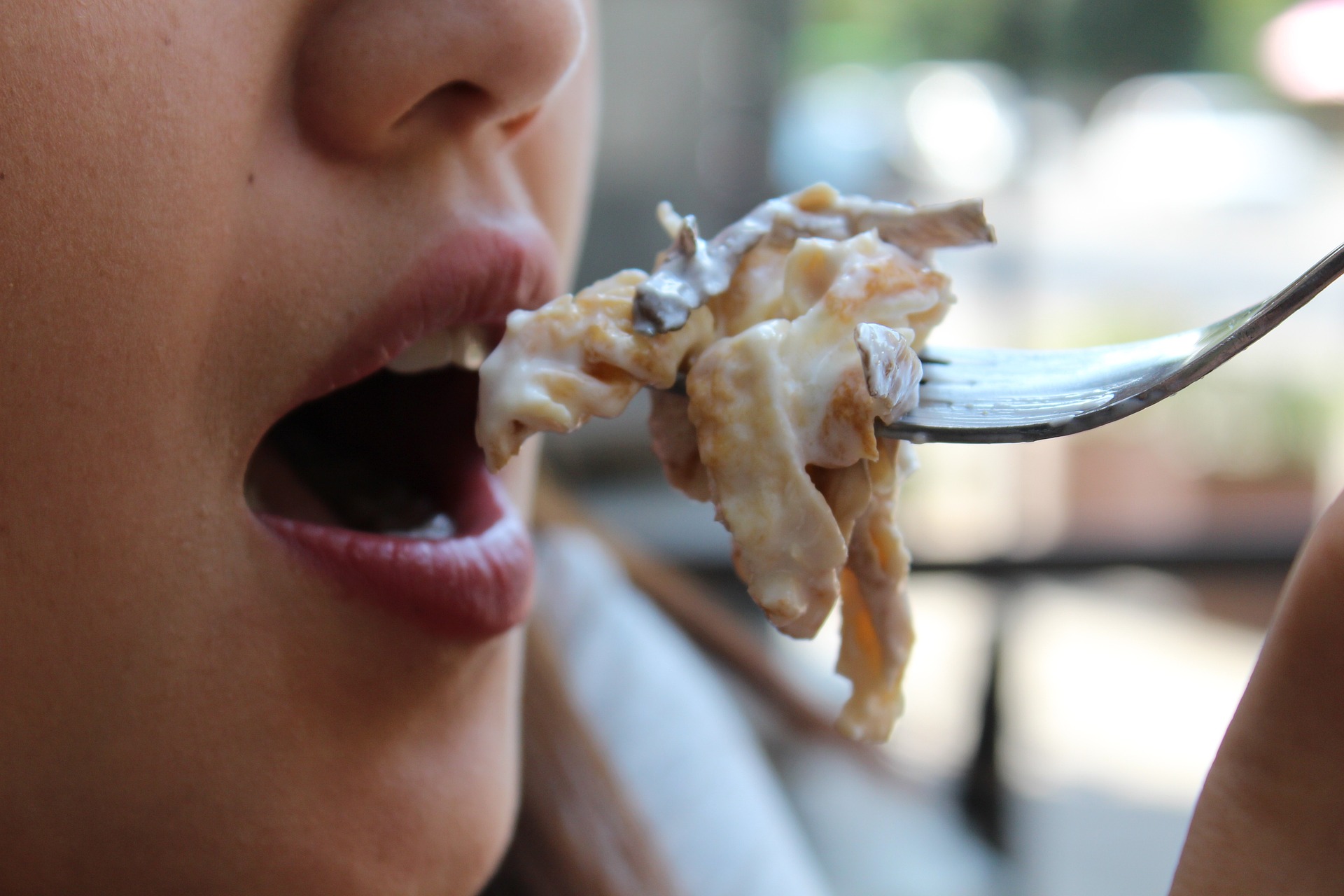What should you do after you binged on food? These tips below will help guide you through binge eating recovery.
Let’s just say you’re coming out of a binge. You may feel physically ill, nauseous, bloated, and even experience abdominal pain. Mentally you may feel guilty, disappointed, or regretful about what just happened. The post-binge anxiety is starting to set in, so what do you do now?
In this article, we will explore four dietitian-approved action steps to take after a binge.
But first, let’s define what a binge really is.
What is Binge Eating?

It can be confusing to understand what bingeing really entails when the word is thrown around so frequently. “I binged a Netflix show last night” or “I binged on pizza at the party”.
It’s no wonder why people have difficulty determining if they’ve binged or not when the definition seems so unclear.
In binge eating disorder or BED, bingeing is defined as consuming unusually large amounts of food and feeling unable to stop eating. This may also coincide with eating rapidly over a short period of time, eating when you’re uncomfortably full, feeling out of control, and eating alone or in secret.
A binge is not simply eating past the point of fullness on occasion, as all humans experience at times, it is the feeling of being unable to stop yourself from eating even when it physically feels uncomfortable.
Binge Eating Recovery: What to Do After a Binge
If you have experienced a binge here are four actions to take next:
1. Tune into potential triggers
What occurred before the binge took place? Although certain triggers will not always result or explain why you may have binged it can be helpful to think about the context that occurred before you felt the urge to binge.
Knowing what potential triggers are, whether it be a topic of conversation with a friend, social media, access to a particular food, etc. can be helpful in learning how to protect yourself from these messages.
This doesn’t mean that you have to stay away from everything that could trigger a binge, it means that you have more foresight into what brings these emotions up for you and it doesn’t have to be as jarring when it occurs.
2. Evaluate your level of restriction
Of course, the classic binge-restrict cycle. For a deeper explanation on this check out our recent blog post on what this cycle means.
Restriction and loss of control around food have a very close relationship and when you are in a place of restriction and deprivation it is common for your body to respond with increased hunger, cravings, and a drive to eat past the point of fullness.
If you have just finished a binge, take a moment to think back about where restriction may have come into play in the last couple hours, days or weeks.
3. Give yourself grace
As mentioned above, bingeing is a normal response to restriction. It is not a lack of willpower. It is not an act of being “unhealthy”. Binge eating is a normal, biological response to deprivation. It is your body’s hardwired response to protect you against famine and starvation.
When you are in a place of restriction (whether intentional or unintentional) your body increases hormones to promote hunger and drive you to eat.
If you’re starving in the desert or experiencing self imposed starvation (ie. dieting) your body doesn’t know the difference. Its job is to recognize the calorie deficit and respond accordingly.
Rather than beat yourself up for experiencing a binge, it may be beneficial to acknowledge that this was your body protecting you.
4. Continue to eat on a consistent schedule
The most beneficial thing for you to do after a binge is to continue eating on a normal schedule. Do not try to compensate for a binge by eating less the next meal or the next day (remember the restrict-binge cycle starts this way!) and continue to eat consistent meals and snacks.
As a general rule of thumb, three meals and three snacks a day (also called the Rule of 3s) is a good place to start to gain more structure around eating regularly.
Binge Eating Recovery: The Takeaway

In our practice, clients sometimes express that they feel their binge eating isn’t as “serious” as other eating disorders and I want to validate here that every eating disorder is serious and deserving of treatment.
Regardless of your exact behaviors, body size, or symptoms your eating disorder/disordered eating behaviors are just as important and deserving of care as anyone else’s.
If you or someone you know is looking to work with a registered dietitian to improve their relationship with food and break free from disordered eating behaviors check out our Intuitive Eating Program to work 1:1 with a Registered Dietitian.
If you aren’t quite ready to make the leap into 1:1 counseling, take a look at our Nourished Body Basics Course for a complete rundown on getting started with healing your relationship with food and your body image.
Looking for more educational content on binge eating recovery and other eating disorder recovery from an intuitive eating dietitian? Take a look at these posts next:
- ED Recovery: What if I’m Not Ready to Give Up My Eating Disorder?
- Disordered Eating: What is a Disordered Eating Pattern?
- Navigating the Holidays in Recovery
Written by Emily Adkisson, RDN

LEAVE A COMMENT
Comments